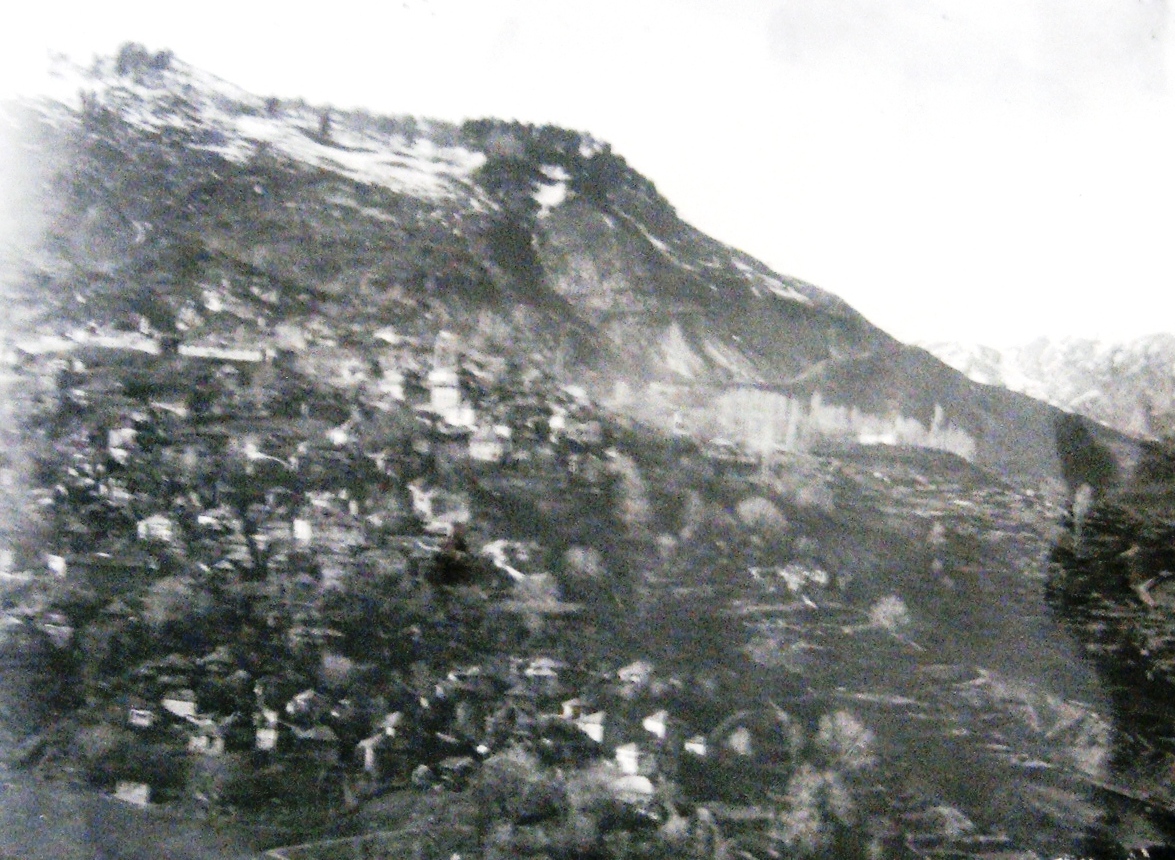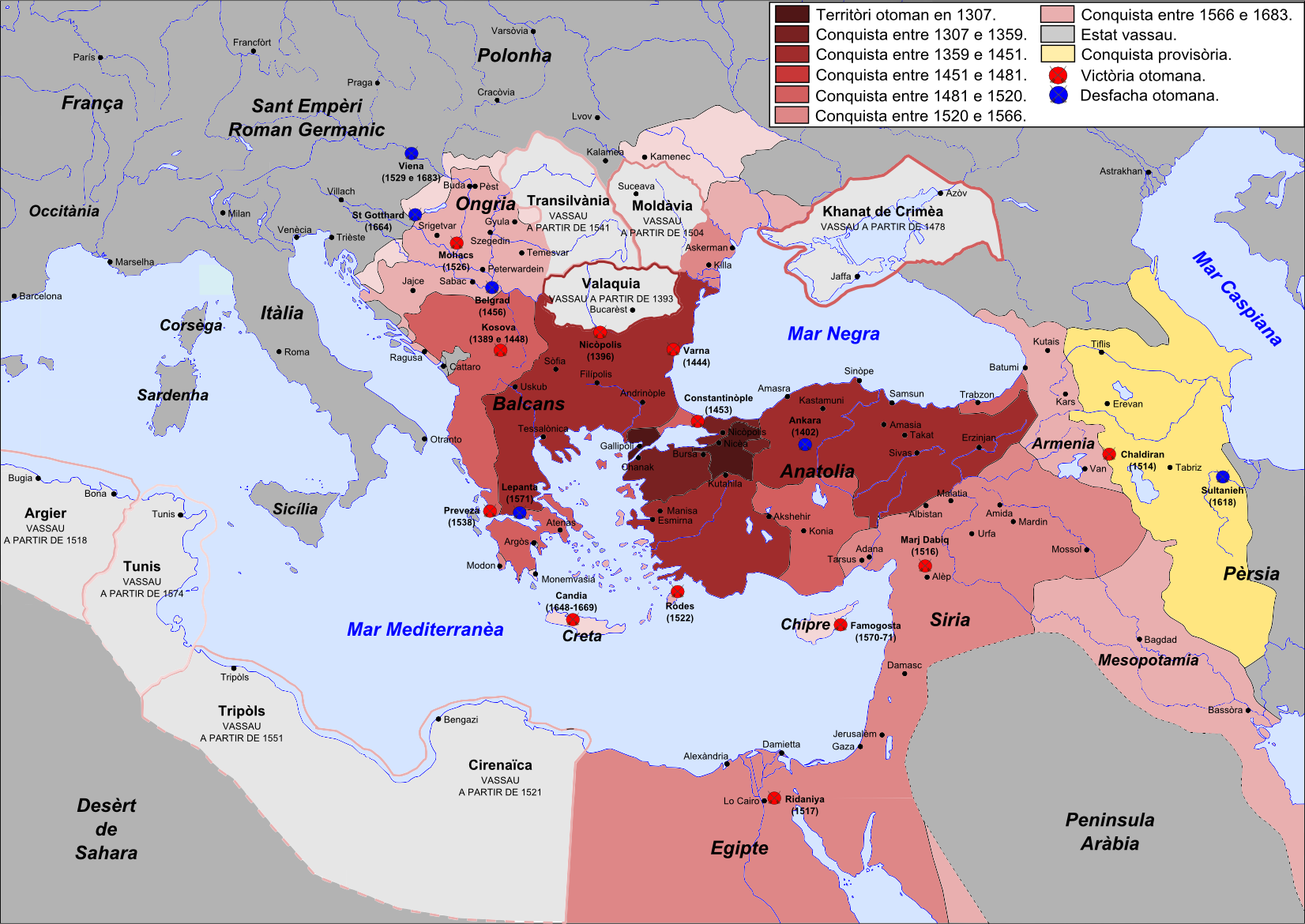|
Kyriakos Flokas
According to oral historical tradition of Metsovo, Κyriakos or Kyrgos Flokas contributed greatly to the granting of a privileged status by the Ottomans to the Metsovo region in 1659. The relevant legend says that a Grand Vizier ensured the granting of privileges to Metsovo in gratitude to the Metsovite chief shepherd after Flokas offered him assistance and a place to hide when the Vizier had fallen into the disfavor of the Sultan and was at risk of being executed. More specifically, the high-ranking Ottoman official, dressed in shepherd's clothes, had been following Flokas’ herds for three years in the winter grasslands of Thessaly and the summer pastures of Metsovo. It was later revealed that the Grand Vizier had been the victim of slander and therefore the Sultan granted him amnesty, sought him out and reinstated him. Later on, the Vizier invited Kyriakos Flokas to visit him and gave him many presents and a Sultan's firman (mandate) granting Metsovo and the neighboring villa ... [...More Info...] [...Related Items...] OR: [Wikipedia] [Google] [Baidu] |
Oral History
Oral history is the collection and study of historical information about individuals, families, important events, or everyday life using audiotapes, videotapes, or transcriptions of planned interviews. These interviews are conducted with people who participated in or observed past events and whose memories and perceptions of these are to be preserved as an aural record for future generations. Oral history strives to obtain information from different perspectives and most of these cannot be found in written sources. ''Oral history'' also refers to information gathered in this manner and to a written work (published or unpublished) based on such data, often preserved in archives and large libraries.oral history. (n.d.) The Columbia Electronic Encyclopedia®. (2013). Retrieved March 12, 2018 from https://encyclopedia2.thefreedictionary.com/oral+history Knowledge presented by Oral History (OH) is unique in that it shares the tacit perspective, thoughts, opinions and understanding of the ... [...More Info...] [...Related Items...] OR: [Wikipedia] [Google] [Baidu] |
Metsovo
Metsovo ( el, Μέτσοβο; rup, Aminciu) is a town in Epirus, in the mountains of Pindus in northern Greece, between Ioannina to the west and Meteora to the east. The largest centre of Aromanian (Vlach) life in Greece, Metsovo is a large regional hub for several small villages and settlements in the Pindus region, and it features many shops, schools, offices, services, museums, and galleries. The economy of Metsovo is dominated by agriculture and tourism, the latter of which flourishes in winter. Metsovo is served by Greek National Road 6 (Ioannina – Trikala) and by the Egnatia Odos motorway. Etymology From medieval times till well into the 19th century, Metsovo was known, in various sources, as ''Metzovo''. From the end of the 18th century on, the literary form of ''Messovon'' makes its appearance. The town is known as ''Aminciu'' in Aromanian (Vlach), and as ''Miçova'' in Ottoman Turkish. Ottoman census records In the Ottoman census records we see the word ''Mcwh'' ... [...More Info...] [...Related Items...] OR: [Wikipedia] [Google] [Baidu] |
Grand Vizier
Grand vizier ( fa, وزيرِ اعظم, vazîr-i aʾzam; ota, صدر اعظم, sadr-ı aʾzam; tr, sadrazam) was the title of the effective head of government of many sovereign states in the Islamic world. The office of Grand Vizier was first held by officials in the later Abbasid Caliphate. It was then held in the Ottoman Empire, the Mughal Empire, the Sokoto Caliphate the Safavid Empire and Morocco. In the Ottoman Empire, the Grand Vizier held the imperial seal and could convene all other viziers to attend to affairs of the state; the viziers in conference were called "''Kubbealtı'' viziers" in reference to their meeting place, the ''Kubbealtı'' ('under the dome') in Topkapı Palace. His offices were located at the Sublime Porte. Today, the Prime Minister of Pakistan is referred to in Urdu as ''Wazir-e-azam'', which translates literally to Grand Vizier. Initially, the Grand Viziers were exclusively of Turk origin in the Ottoman Empire. However, after there were troubles b ... [...More Info...] [...Related Items...] OR: [Wikipedia] [Google] [Baidu] |
Sultan
Sultan (; ar, سلطان ', ) is a position with several historical meanings. Originally, it was an Arabic abstract noun meaning "strength", "authority", "rulership", derived from the verbal noun ', meaning "authority" or "power". Later, it came to be used as the title of certain rulers who claimed almost full sovereignty (i.e., not having dependence on any higher ruler) without claiming the overall caliphate, or to refer to a powerful governor of a province within the caliphate. The adjectival form of the word is "sultanic", and the state and territories ruled by a sultan, as well as his office, are referred to as a sultanate ( '. The term is distinct from king ( '), despite both referring to a sovereign ruler. The use of "sultan" is restricted to Muslim countries, where the title carries religious significance, contrasting the more secular ''king'', which is used in both Muslim and non-Muslim countries. Brunei and Oman are the only independent countries which retain the ti ... [...More Info...] [...Related Items...] OR: [Wikipedia] [Google] [Baidu] |
Thessaly
Thessaly ( el, Θεσσαλία, translit=Thessalía, ; ancient Thessalian: , ) is a traditional geographic and modern administrative region of Greece, comprising most of the ancient region of the same name. Before the Greek Dark Ages, Thessaly was known as Aeolia (, ), and appears thus in Homer's ''Odyssey''. Thessaly became part of the modern Greek state in 1881, after four and a half centuries of Ottoman rule. Since 1987 it has formed one of the country's 13 regions and is further (since the Kallikratis reform of 2011) sub-divided into five regional units and 25 municipalities. The capital of the region is Larissa. Thessaly lies in northern Greece and borders the regions of Macedonia on the north, Epirus on the west, Central Greece on the south, and the Aegean Sea on the east. The Thessaly region also includes the Sporades islands. Name and etymology Thessaly is named after the ''Thessaloi'', an ancient Greek tribe. The meaning of the name of this tribe is unknow ... [...More Info...] [...Related Items...] OR: [Wikipedia] [Google] [Baidu] |
Flocafé
Flocafé is a Greek franchise coffee house chain and belongs to Vivartia, a nutrition conglomerate brand that owns several similar franchises. With the cooperation of the Flokas family from Metsovo, well known for their pastry shops in Thessaloniki since the late 19th century, and the founders of Goody's, they opened its first outlet in Athens in 1994. It now operates over 80 coffee houses in the Balkan peninsula, Cyprus and on several cruise ships. In 2006 it held a 10.2% of the Greek market share. Free internet is provided by Vodafone. In 2013, plans were announced to open 10 branches in Libya. Stores These were the stores of Flocafé as December 2018: See also * List of coffeehouse chains * * Goody's Burger House (restaurant) Goody's Burger House S.A. is Greece's largest fast food company. Its head office is in Building 14B, Eleftherios Venizelos International Airport in Spata, Attica. It was founded in 1973 by Ioannis Dionisiadis, Achilleas Folias and Nikolaos Pappas ... [...More Info...] [...Related Items...] OR: [Wikipedia] [Google] [Baidu] |
Ottoman Greece
Most of the areas which today are within modern Greece's borders were at some point in the past part of the Ottoman Empire. This period of Ottoman rule in Greece, lasting from the mid-15th century until the successful Greek War of Independence that broke out in 1821 and the proclamation of the First Hellenic Republic in 1822 (preceded by the creation of the autonomous Septinsular Republic in 1800), is known in Greek as ''Tourkokratia'' ( el, Τουρκοκρατία, "Turkish rule"; en, "Turkocracy"). Some regions, however, like the Ionian islands, various temporary Venetian possessions of the Stato da Mar, or Mani peninsula in Peloponnese did not become part of the Ottoman administration, although the latter was under Ottoman suzerainty. The Eastern Roman Empire, the remnant of the ancient Roman Empire which ruled most of the Greek-speaking world for over 1100 years, had been fatally weakened since the sacking of Constantinople by the Latin Crusaders in 1204. The Ottoman ... [...More Info...] [...Related Items...] OR: [Wikipedia] [Google] [Baidu] |





